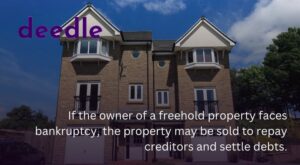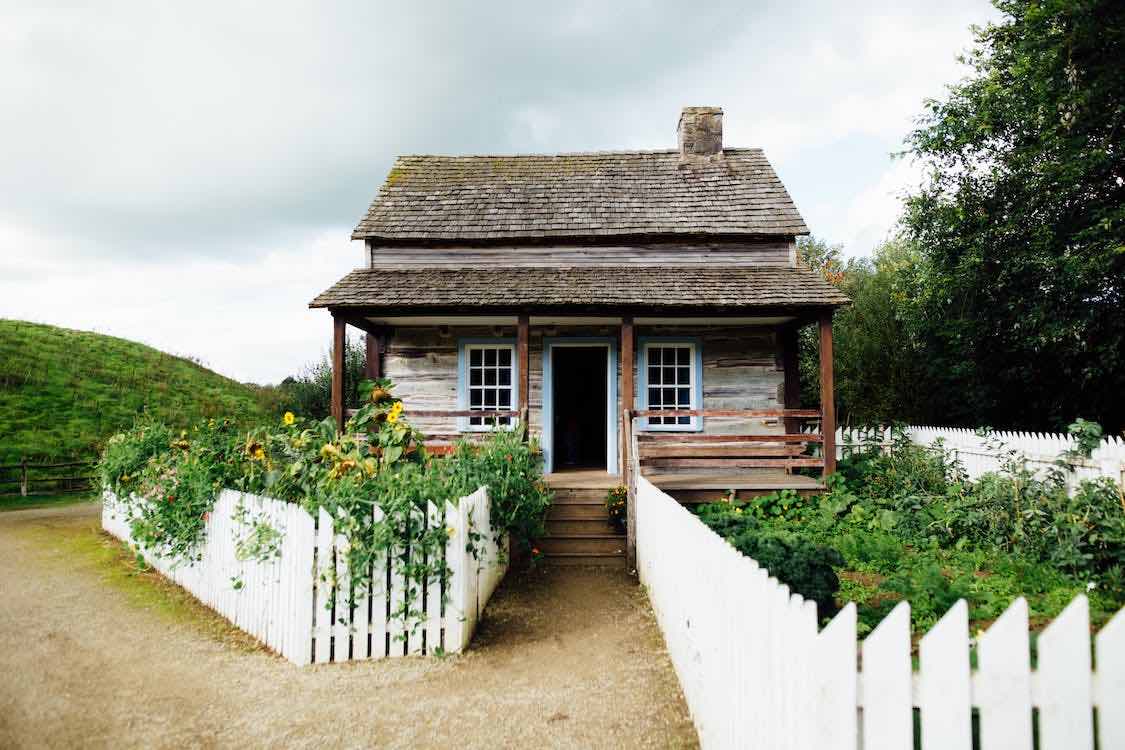Freehold is a form of property ownership that grants the owner complete and indefinite ownership rights over both the land and any buildings built or existing on it. When you purchase a freehold property, you acquire an estate in fee simple, which is the highest form of ownership recognised in law.
In the first six months of 2021, there were 1,523 new-build transactions in England, of which 44.8% (or 683) were freehold homes. This guide aims to explain how freehold homes work, as well as the difference between this option and lease hold.
How Does Freehold Ownership Work?
Freehold ownership is perpetual and does not have a time limit. Once you become the freeholder, you are not subject to any lease or tenancy agreement, and you hold the title to the property forever.
This provides a sense of stability and security, as you can live in or use the property for as long as you wish, without the worry of the ownership rights expiring. You will not pay ground rent to any landlord, or any service charges for common areas.
What are the Advantages of Freehold Ownership?
Greater Control
Freehold ownership grants you the freedom to make decisions about the property without needing to seek permission from a landlord or management company. You can carry out alterations, extensions, or renovations to the property as you see fit, provided you comply with planning and building regulations.
No Ground Rent or Service Charges
Unlike leasehold properties, freehold owners are not obligated to pay ground rent to the landlord or freeholder. There are no service charges to cover the maintenance and management of common areas, which can result in significant savings over time.
No Lease Limitations
Freehold properties have no lease terms or expiration dates, which means there are no restrictions on how long you can occupy the property. This sense of permanence is appealing to many property buyers, especially those looking for long-term stability.
Investment Potential
Freehold properties are generally more appealing to potential investors as buy to lets, as they offer a sense of security and control. This can make freehold properties easier to sell, and they may also hold their value better over time compared to leasehold properties.
What Happens to Freehold Properties in Case of Bankruptcy?
If the owner of a freehold property faces bankruptcy, the property may be sold to repay creditors and settle debts. The proceeds from the sale will usually be distributed among the creditors, and any remaining balance will go to the property owner or their beneficiaries.
In the event of bankruptcy, the freeholder may lose ownership of the property if the sale proceeds are insufficient to cover all debts. If the property is jointly owned with others, the freeholder’s share of the property may be subject to seizure and sale to satisfy the bankruptcy proceedings.

What is the Difference Between Freehold and Leasehold?
Ownership Rights
Freehold ownership grants absolute and indefinite ownership rights over the property and the land it stands on. Leasehold, on the other hand, provides the right to use the property for a fixed period, subject to a lease agreement with a landlord (freeholder).
Time Period
Freehold ownership has no time limit and continues indefinitely. Leasehold ownership is for a specific period outlined in the lease agreement, which can be several decades but is ultimately finite.
Ground Rent
Leasehold properties often involve the payment of ground rent to the freeholder and service charges for the maintenance of shared areas. Freehold properties do not require such payments.
Alterations
Freehold owners have greater freedom to make alterations or changes to the property without seeking permission from a landlord. Leasehold properties may require consent for certain alterations.
Can Both Houses and Flats be Freehold Properties?
Yes, both houses and flats can be freehold properties. In the case of houses for first time buyers, freehold ownership is more common, and the majority of houses in the UK are sold as freehold properties. However, some new build houses may be sold as leasehold properties, so check the title deeds before purchasing.
Flats are more often leasehold properties, especially in larger buildings where the management of shared areas and services is required. However, it is possible to own a flat on a freehold basis.

Can Freehold Properties Have Restrictions?
While freehold ownership offers more flexibility, some restrictions may still apply to the property. Local planning authorities may impose restrictions on what can be built or modified on the property. This could include limitations on building height, extensions, or changes to the property’s appearance.
If the property is located within a designated conservation area, there may be additional restrictions on alterations or renovations to preserve the area’s historical or architectural significance. The same applies for listed buildings.
How is Freehold Ownership Transferred?
The transfer of freehold ownership involves a legal process known as conveyancing. When you decide to buy a freehold property, your solicitor or conveyancer will handle the legal aspects of the purchase.
Can Freehold Properties be Converted to Leasehold?
In some cases, freehold properties can be converted to leasehold, but this is relatively rare and usually occurs under specific circumstances. For example if a group of leaseholders in a building with a common freeholder collectively decide to purchase the freehold of the entire building.
If you own a freehold flat with a share of freehold in a building, you can convert it into leasehold flats. Each unit will then have a leasehold title, and the freehold will be divided among the flat owners.
Can Freehold Ownership Expire?
No, freehold ownership does not have an expiration date. Once you become the freeholder of a property, you and your descendants will retain ownership rights indefinitely. As long as you meet your legal and financial obligations, the property will remain yours without any time limit.
How Can I Check the Freehold Status of a Property?
You can verify the freehold status of a property by requesting an official copy of the title register and title plan from the Land Registry. To access the Land Registry records, you will need the property’s address or title number.
Are Freehold Properties More Expensive than Leasehold Properties?
Yes, freehold properties are generally more expensive than leasehold properties, primarily because they offer additional ownership rights and freedoms. The absence of ground rent and service charges in freehold properties also makes them more appealing to many buyers.
Can I Purchase a Freehold Property with a Mortgage?
Yes, you can buy a freehold property with a mortgage, just like you would with a leasehold property. Many lenders offer mortgages for both freehold and leasehold properties, and the mortgage application process remains relatively similar for both types of ownership.
The lender will assess your eligibility for a mortgage based on factors such as your income, credit history, and the property’s value. The property will also be subject to a valuation by the lender to determine its market value and suitability as security for the loan.
Concluding Thoughts
While freehold properties tend to be more expensive than leasehold properties, their appeal to potential buyers and their potential for better value retention make them a desirable investment. Buyers should carefully review the title deeds and seek legal advice to understand any existing limitations or legal implications.

